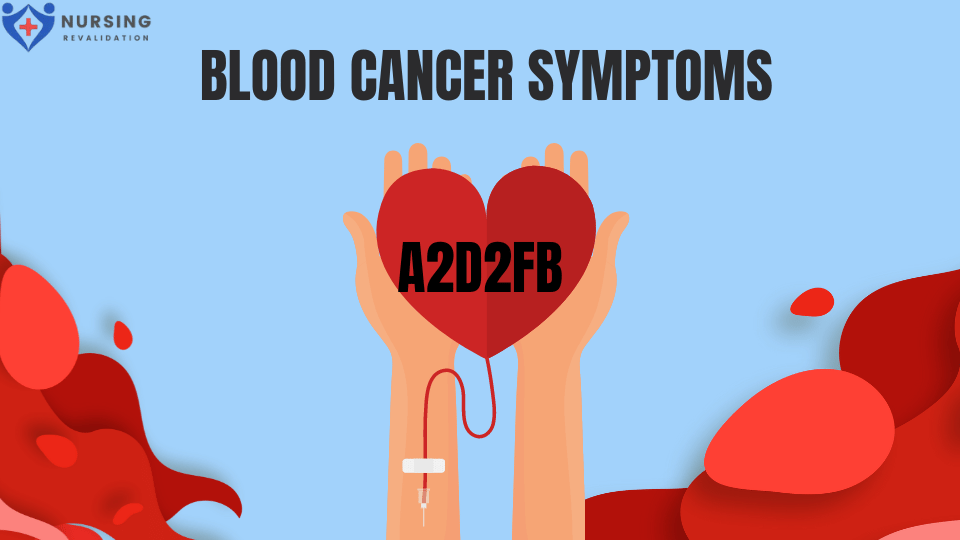Introduction
Cancer is a term used to describe a group of diseases characterized by the uncontrolled growth and spread of abnormal cells in the body. Blood cancer, also known as hematologic cancer, occurs when there is a problem with the production or function of blood cells. In this article, we will discuss Blood Cancer Symptoms, which include:
What is blood cancer?
Blood cancer, also known as hematologic cancer, is a type of cancer that affects the blood, bone marrow, and lymphatic system. In a healthy body, blood cells are produced in the bone marrow, which is a spongy tissue located in the center of bones. Blood cancer occurs when there is a problem with the production or function of blood cells.
Types of blood cancer
There are three main types of blood cancer:
- Leukemia: This type of cancer affects the white blood cells, which are responsible for fighting infections. Leukemia can be acute or chronic, depending on how quickly it progresses.
- Lymphoma: Lymphoma is cancer that affects the lymphatic system, which is a part of the immune system that helps to fight infections. There are two main types of lymphoma: Hodgkin lymphoma and non-Hodgkin lymphoma.
- Myeloma: Myeloma is cancer that affects the plasma cells, which are a type of white blood cell that produces antibodies to fight infections.
Symptoms of blood cancer
The symptoms of blood cancer can vary depending on the type of cancer and the stage of the disease. Some common symptoms of blood cancer include:
- Fatigue and weakness
- Shortness of breath
- Unexplained weight loss
- Easy bruising and bleeding
- Frequent infections
- Bone pain or tenderness
- Enlarged lymph nodes, spleen, or liver
- Night sweats
- Fever
Diagnosis of hematologic cancer
If you are experiencing any of the symptoms of blood cancer, your doctor may recommend some tests to diagnose the disease. These tests may include:
- Blood tests to check for abnormal blood cells
- Biopsy to remove a sample of bone marrow or lymph node tissue for examination
- Imaging tests, such as X-rays, CT scans, or MRI scans, to look for signs of cancer in the body
Treatment of blood cancer
The treatment for blood cancer depends on the type and stage of the disease. Some common treatments for blood cancer include:
- Chemotherapy to kill cancer cells
- Radiation therapy to destroy cancer cells
- Stem cell transplant to replace diseased bone marrow with healthy bone marrow
- Targeted therapy to attack specific cancer cells
Coping with blood cancer
Being diagnosed with blood cancer can be overwhelming and stressful. It is important to seek support from family, friends, and healthcare professionals. Some ways to cope with blood cancer include:
- Educating yourself about the disease and treatment options
- Participating in support groups or counseling
- Maintaining a healthy lifestyle, including regular exercise and a balanced diet
- Asking for help when you need it
Prevention of blood cancer
Unfortunately, there is no sure way to prevent blood cancer. However, there are some steps you can take to reduce your risk, such as:
- Avoiding exposure to chemicals and radiation
- Quitting smoking
- Maintaining a healthy weight
- Getting regular exercise
- Eating a balanced diet
Conclusion
Blood cancer is a serious disease that affects millions of people worldwide. The symptoms of blood cancer can be vague and may not appear until the disease has progressed to an advanced stage. It is important to be aware of the signs of blood cancer and to seek medical attention if you are experiencing any of the symptoms.
If you are diagnosed with blood cancer, it is important to work closely with your healthcare team to develop a treatment plan that is right for you. Treatment may include chemotherapy, radiation therapy, stem cell transplant, or targeted therapy. Coping with blood cancer can be difficult, but with the right support, it is possible to live a full and meaningful life.
FAQs
What causes blood cancer?
The exact cause of blood cancer is not known, but it is thought to be related to genetic mutations that occur in blood cells.
Who is at risk for blood cancer?
Anyone can develop blood cancer, but certain factors, such as age, gender, exposure to chemicals and radiation, and certain genetic conditions, may increase your risk.
Can blood cancer be cured?
The outcome of blood cancer treatment varies depending on the type and stage of the disease. Some people are able to achieve remission or even be cured, while others may experience a recurrence of the disease.
What can I do to reduce my risk of developing blood cancer?
There is no sure way to prevent blood cancer, but maintaining a healthy lifestyle, avoiding exposure to chemicals and radiation, and quitting smoking may help reduce your risk.

